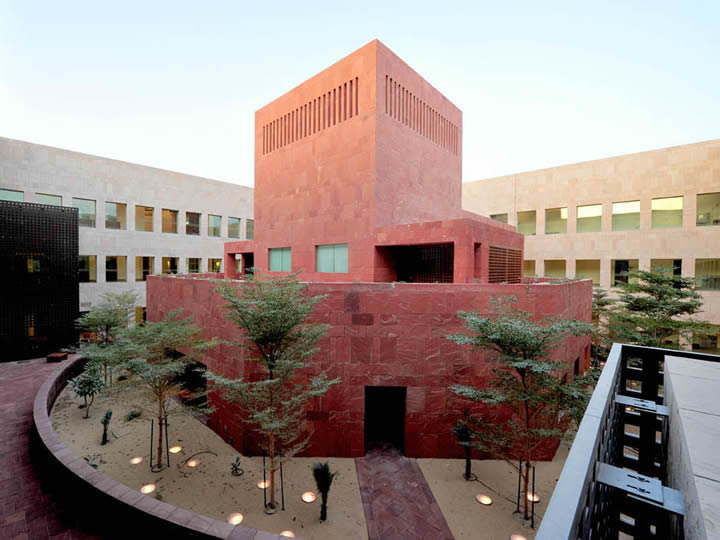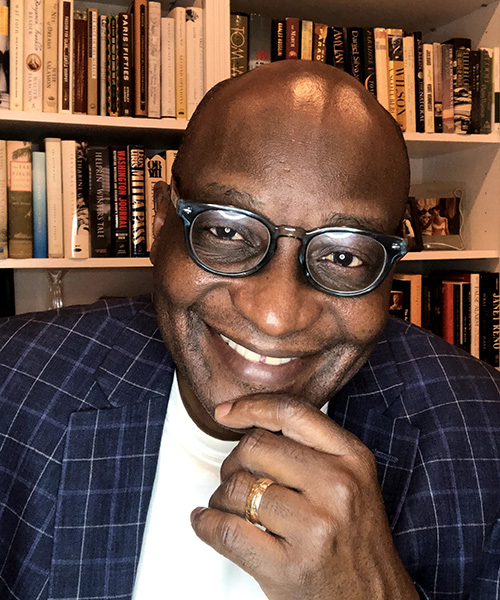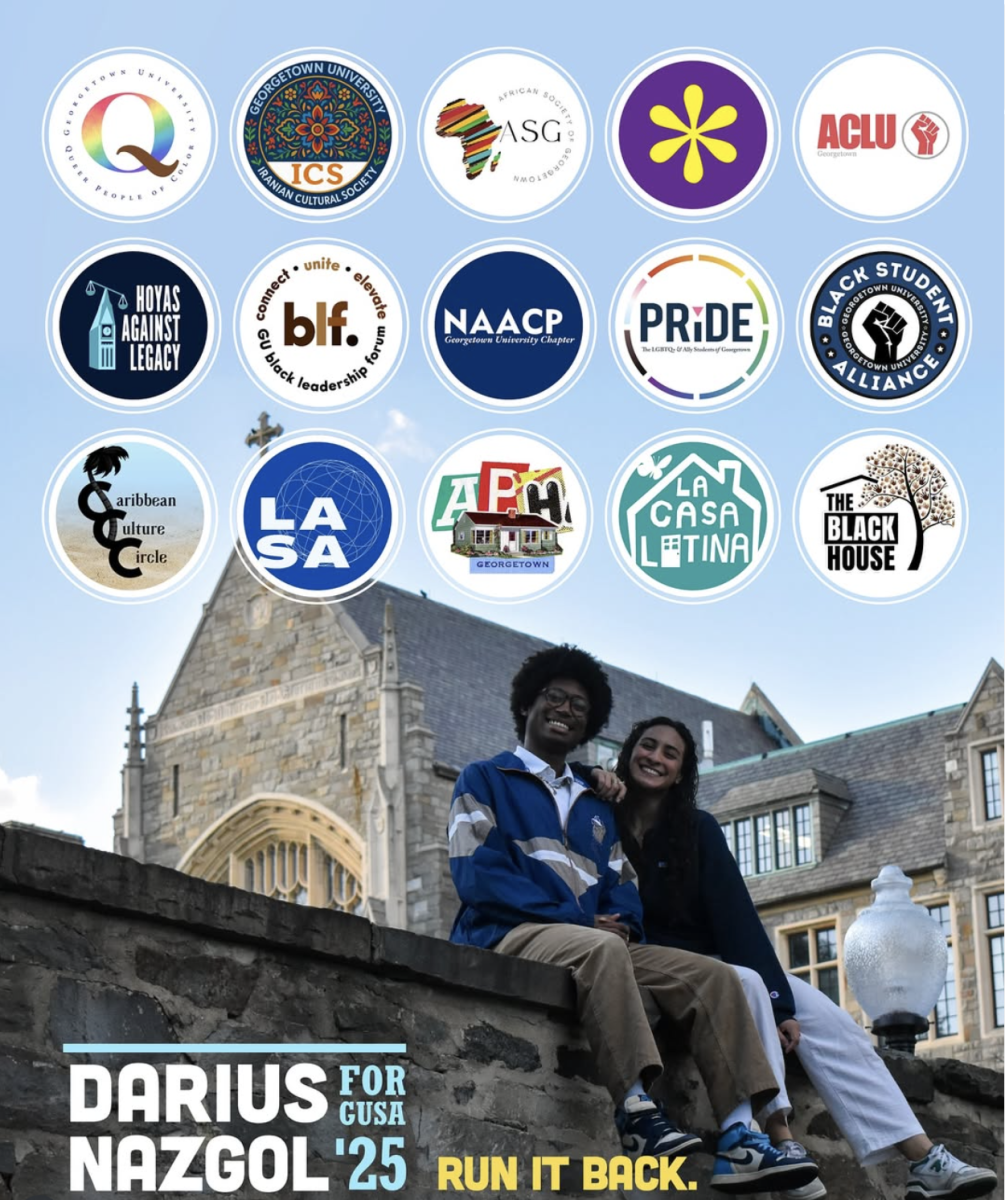The Georgetown University in Qatar (GU-Q) School of Foreign Service (SFS-Q) will launch the science, technology and international affairs (STIA) major program in Fall 2026, university faculty confirmed to The Hoya.
The undergraduate major will build on the Washington, D.C. campus’s existing STIA program and give students the opportunity to explore energy transitions, food and water security and the shifting terms of international politics and diplomacy. GU-Q will draw from existing courses on the Hilltop campus while introducing new courses and faculty members to tailor the program to the region, according to STIA faculty.

Emily Mendenhall, the director of the STIA program at the Hilltop campus, said the introduction of STIA in Qatar will be key to expanding GU-Q’s focus beyond the social sciences.
“STIA in Qatar is long overdue,” Mendenhall wrote to The Hoya. “Our colleagues have built a foundational hub for thinking about international affairs in the Middle East. Incorporating a science and tech component will not only broaden the capabilities for students but also for faculty working at these critical intersections.”
Akkshath Subrahmanian (SFS ’26), a STIA major who studied abroad in Qatar, said the foreign service-focused classes in Doha were less tailored to the sciences in comparison to the main campus.
“On the Hilltop, the STIA program has been growing quickly in regards to the number of students because people want to have a more interdisciplinary curriculum with the sciences,” Subrahmanian wrote to The Hoya. “In Doha, the classes are generally limited to support IPOL, IHIST, IECO and CULP students. As such, the chance to study science is limited.”
SFS-Q currently offers majors in culture and politics (CULP), international politics (IPOL), international history (IHIS) and international economics (IECO) — only four of the eight major programs offered at SFS on the Hilltop campus.
Ranneme Abu-Hajar (SFS-Q ’26), an SFS-Q student currently studying abroad at the D.C. campus, said she believes introducing STIA to the Qatar campus would fill an important gap in the university’s academic offerings.
“I feel like CULP, IHIS, IECO and IPOL are all social sciences and humanities related and I think bringing in STIA and STIA classes can bring our Georgetown educational experience full circle,” Abu-Hajar told The Hoya.
“I was in Qatar this past summer, and people were talking about it, and so many students were really excited about it. It’s just something new, something different and something crucial that we need to bring to the table,” Abu-Hajar added.
Rowan Ellis, an assistant teaching professor of science at GU-Q who has been key in developing the program, said the importance of integrating diverse perspectives from the Global South into conversations around scientific and technological advancements was central to the decision to debut STIA.
“Increasingly, our students are very aware that the pace of scientific and technological innovation is bringing new environmental, ethical and policy issues rapidly into their purview as future global leaders,” Ellis wrote to The Hoya. “Equally, the development of STIA at GU-Q also represents an urgent and timely opportunity to enhance diversity within the ‘big’ conversations that the STIA program addresses, and to bring in more Southern, non-traditional voices to these debates.”
Qatar’s location, on the northeastern coast of the Arabian Peninsula, has also been important in the push to bring STIA to Doha.
Adeena Hossain (SFS-Q ’27), an SFS-Q student currently studying abroad at the D.C. campus, told The Hoya that the location was one of the most valuable features of the Qatar campus.
“Qatar is located in such a strategic, interesting location,” Hossain said. “We have Iran next to us, and then we also have the whole continent of Africa. I meant like, we’re literally in the middle of Asia, Africa and Europe. So we have a lot of access.”
Mark Giordano, the SFS vice dean for undergraduate affairs and a professor in the Hilltop STIA program, said the importance of science and technology fields in Qatar made STIA an even more important addition to students.
“Qatar is in the center of the world’s gas and oil industry but understands climate science, relies almost entirely on desalinated water, and uses cutting edge military technology for security,” Giordano wrote to The Hoya. “No science and technology, no Qatar. STIA is the second largest major in SFS. It is the second largest concentration in MSFS. I wouldn’t be surprised to see something similar in Doha.”
Ellis said the STIA program was especially necessary considering the current state of the sciences worldwide.
“We are at an unsettling and potentially pivotal moment in terms of the position and legitimacy of science within the public arena,” Ellis wrote. “As many parts of the world are facing existential challenges to scientific knowledge production, there is value in looking further afield for insight and leadership.”













